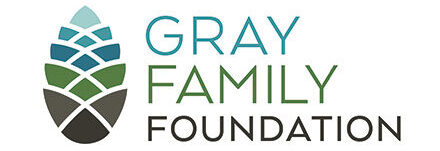Bringing Assessment for Learning Outdoors
The Bringing Assessment for Learning Outdoors project was designed to strengthen the Outdoor School program’s impact on student learning by 1) creating high-quality assessments for the key student outcomes of academic identity, motivational resilience, and application of conceptual knowledge and 2) using assessment data to drive program improvement by providing Outdoor School instructors with reflective professional development that is focused on understanding and strengthening student learning about science concepts that are central to the Outdoor School program. Assessments can be used to enhance student learning, refine educator practices, and drive program improvement, but in order to realize these benefits of assessment for learning, educators need professional development. This project’s joint focus on assessment development and professional development was, therefore, designed to be a first step in bringing the benefits of assessment for learning to the Multnomah Education Service District’s (MESD) Outdoor School program. Read the full report here.
Empirical Evidence Supporting the Benefits of Outdoor School and Experiential Learning Programs
The Empirical Evidence Supporting the Benefits of Outdoor School and Experiential Learning Programs brief draws heavily on a 2007 literature review conducted by the Washington State Office of Superintendent of Public Instruction, which looked at 76 articles examining the impacts of outdoor education programs. This review, completed for the Oregon Outdoor Education Coalition by Metropolitan Group, focuses on studies that evaluated formal K-12 programs. Studies of outdoor and experiential education programs offered outside of school were also analyzed, including nontraditional programs such as hunting and fishing, however studies of programs in lifelong learning, home schooling, and pre-K were not included.
This brief specifically examines evidence for increasing academic achievement, teaching children how to collaborate and build community; building self-sufficiency, self-esteem and leadership skills; creating good stewards of the land; gaining future employment skills; accessibility for all students; and developing healthy life-long habits. Read the full report here.
Outdoor School’s Economic Impact
Gray Family Foundation commissioned an analysis of the economic impact of this program if it were to be scaled statewide, so that every Oregon fifth or sixth grader would have the opportunity to attend a week of Outdoor School.
The economic analysis looks at what the impact would be if a similar Outdoor School program, like the one currently budgeted for students in Portland Public and the Reynolds School Districts for next year, were to be replicated in public school districts across the state. The economic analysis shows that the program could reasonably expect to generate over 600 FTE jobs and over 27 million dollars in income in the state. It is also worth noting that these jobs would be primarily located in rural areas where structural unemployment in Oregon is particularly acute, and assuming the program continued to run year after year that these jobs would be permanent rather than temporary. Read the full report here: The Economic Impacts of Outdoor Education.
The Effects of a Residential Science Education Program on Student Success Indicators
This research, conducted out of Portland State University, is based on data from the Multnomah Education Service District (MESD) Outdoor School program. The analysis accomplished thus far reinforces assumptions about how this program can translate into success in the classroom providing solid, empirical evidence to support the anecdotal claims we’ve heard about Outdoor School for many years–anecdotes such as, “kids are more engaged in school after ODS,” “ODS helps students develop a strong sense of community with their classmates and teacher,” or “Outdoor School engages kids in learning because they develop a sense of connection to the natural world and see how science is relevant to their everyday lives.” This data has provided us with some support that the MESD Outdoor School program positively impacts student success indicators, like school attendance as well as providing a starting point to begin answering more questions about the impact of the Outdoor School program and how it connects to student success. Read the full report here.
